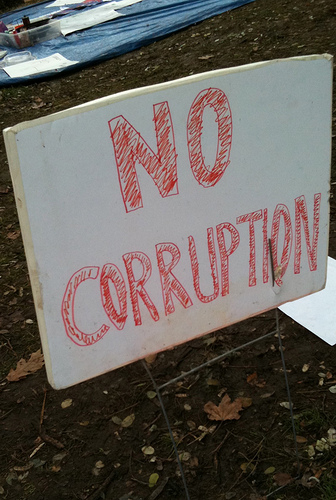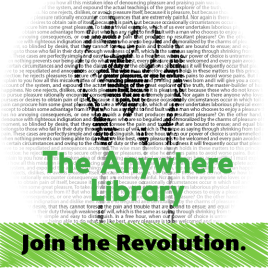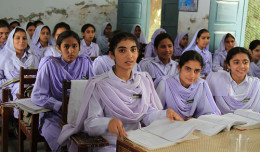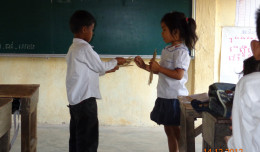 Corruption still remains as one of the major factors impeding progress in low and middle income countries worldwide. Experiences from all over the developing world were included as part of Transparency International’s “Global Corruption Report: Education”.
Corruption still remains as one of the major factors impeding progress in low and middle income countries worldwide. Experiences from all over the developing world were included as part of Transparency International’s “Global Corruption Report: Education”.
Released last week, the report consists of more than 70 articles commissioned from experts in the fields of corruption and education, from universities, think-tanks, businesses, civil society and international organisations. The aim is to show governments and civil society across the globe that corruption in education – from the primary school level to university – affects schooling at every level and in multiple ways.
When resources that are publicly allocated to schools are in fact siphoned off for private use, this corruption has a significantly negative impact on the state of education in that country. It not only reduces the availability of learning for the children affected, but it also undercuts the quality of educational inputs such as learning facilities and materials to teachers and administrators.
Corruption acts as an added tax on the poor who are forced to adhere to demands for illicit fees and bribes, from primary to university level. The authors of a large study commissioned by the International Monetary Fund found corruption is consistently related to greater cost and lower quality of education.
Some have argued that a human-rights based approach to education and development commitments must be adopted by governments if they wish to ensure that equal access to education is available for their children. They have a duty to create correct incentives for school administrators and teachers to not engage in corruption, and create better working conditions so that teachers feel proud of their work and teaching environment. For Greater transparency is the key, and to achieve this aim they must increase information to communities, which includes changes such as clear details about school fees and examinations.
Governments must ensure that they can be better held accountable by ensuring that funds are reaching their intended destination and disbursement levels are heading in the right direction. They need to establish oversight bodies, such as parents’ committees in the management of schools, to help prevent and detect corruption. Civil society must be encouraged to demand governments provide universal education for their children as a fulfillment of their human rights.

















